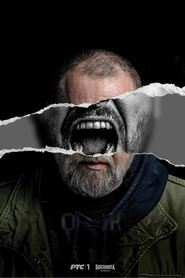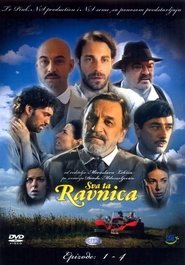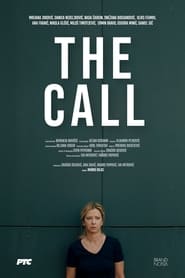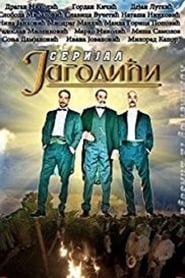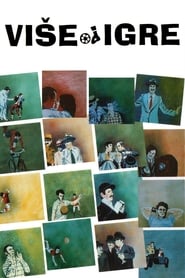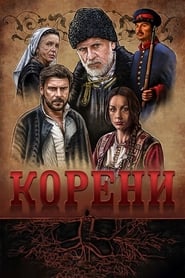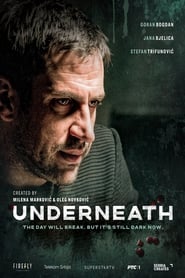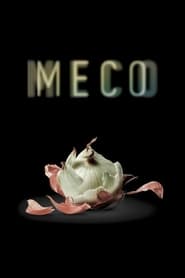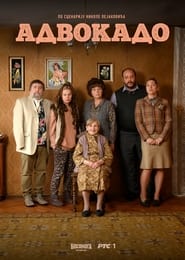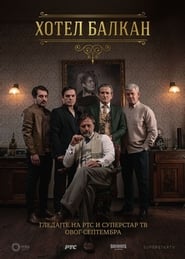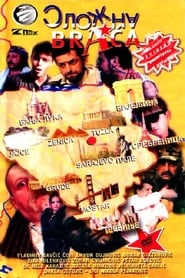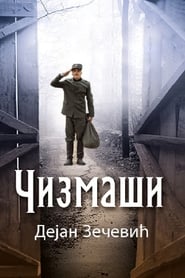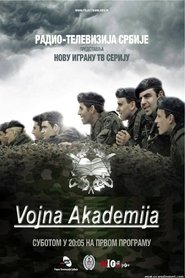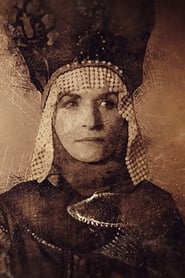Rts 1 TV Series - Page 2
-
Skin
2024
star 6.5The story of a musician, former drug addict and drug dealer named Slobodan Milosevic. -
All These Plains
2010
All These Plains
2010
Series is based on the authentic 19th century story, following the destiny of Jagodic brothers, who own a rich and spacious property in Banat (Northeast Serbia). Their premature death stops every opportunity to continue their family lineage. -
Call
2023
star 8Anica Reljic, a former police inspector who now works in a call center, receives a call from Sonja Tosic, a rich single mother who wants to know the identity of the person who is threatening her on the phone. As Anica investigates the threatening calls, she realizes that they are connected to a criminal group from her past life. She tries to warn Sonja, but Sonja disappears, prompting Anica and Tiana, Sonja's rebellious daughter, to go in search of her. They soon discover that Sonja may be the key to uncovering the truth behind an environmental scandal rocking the country: the mysterious poisoning of three boys. -
More Than a Game
1974
star 7.8The story follows a ten-year period before WW2 in a fictional town of Gradina, Serbia and its residents, which went through the turbulent events like the Great Depression and the rise of fascism. But the most important segment of the story revolves around rivalry between two city's football clubs - Radnicki and Gradjanski. -
The Roots
2018
star 8The story of fictional Katić family. Vukašin returns home from the studies in France to tell his father Aćim and brother Đorđe that he plans to marry the daughter of his father's political opponent and enemy. Aćim threatens to wipe him out from the will and intricate family relations come to light. Đorđe and his wife have problems, because after 15 years of marriage they still have no children. -
Underneath
2020
star 6.2Facing his own past, an investigator unravels the mystery behind three cruel, ritualistic murders. -
Truckers, Inc.
2020
star 2Legendary TV series from the 1970s about the adventures of two truck drivers is updated for the modern age. -
Flesh
2017
star 8.3Mirko, an average football player at the end of his career, is back in his hometown because of a knee injury. His family owns a restaurant which is on the verge of collapsing, both because of the economic unprofitability, and because of the plans of local criminals who are interested in the plot where the restaurant is located. One of those criminals is Slavko, Mirko's childhood friend, who suddenly returns to his life, just when Mirko needs him the most. -
The Group
2019
star 7.7Dragan Miletić Gaga, an experienced inspector of the third department for blood crimes, has specific working methods that many people do not like. Persistent, stubborn, thorough, he persists in his intention to solve an old case. The moment when a famous Belgrade criminal, who is his obsession, is killed, is not the end for him - on the contrary, everything is just beginning. Continuing his search, Gaga's investigation will lead to minors who have been dragged into a much more dangerous game by petty dealer jobs. This will open Pandora's box from which new problems, new entanglements and new unresolved situations will fly out. -
The Unpicked Strawberries
1976
star 6.8Grlom u jagode is a 1975 Yugoslavian TV miniseries directed by Srđan Karanović and co-written by Karanović and Rajko Grlić. Depicting the life and times of a young man nicknamed Bane Bumbar, the series achieved huge popularity throughout SFR Yugoslavia. Revolving around Bane, his family, and his circle of friends, the series also portrays 1960s Belgrade, Serbia and Yugoslavia. -
Advocado
2021
star 1.5The series "Advokado" follows the ups and downs of the main character Brane and his faithful companion Beli. At the center of the plot are their friendly and family relations as they try to find the meaning and peace in life. -
Hotel Balkan
2020
star 9This series takes viewers on a journey in the 1930s, under the roof of the hotel, where the past and the present merge. The focus of the series is business of a prominent Banja Luka family, entangled in numerous intrigues. -
United Brothers
0000
star 7.5Taking place just after the end of Bosnian War, the series is mostly set in a kafana named Složna braća owned by Halimić brothers and located on a small patch of UN-controlled territory (covering 0.0657 km2) not claimed by any of the three warring sides. Serbs, Bosniaks, and Croats, otherwise very hostile to each other following a ferocious civil war, regularly visit the said kafana in no man's land in order to arrange mutual black market activities (weapons and food trade, oil and cigarette smuggling, etc.). When the word gets around about an important weapons shipment passing through the territory that can supposedly completely change the division of power in the Balkans, the place becomes a lively hub of espionage, deal making, and skulduggery. -
The Bootmen
0000
star 5.5A powerful lyrical story about the sergeant of the former Yugoslav Army Zika Kurjak, from childhood in miners' home, through military days, to severe depression, imprisonment and the metropolitan madness. Kurjak, the personification of human kindness, who is impaired and disturbed, as an old and ornate in the hospital, speaks in detail about his life. Through this searing story of sergeant Zika Kurjak and his life, some of the crucial historical circumstances of the 20th century are being blunted, as well as the fate of the heroic Serbian army, which becomes part of the new system after unification, and which the system is gently destroying leaving individuals individually fighting for it and prevent inevitable decay. -
The Family
2021
star 5The story takes place around 2001, which follows the last 48 hours of Slobodan Milošević's life together with his family at large until his arrest and subsequent extradition to The Hague. -
Bones
2020
star 7.2The story of two people who, at first glance, are connected only by their name - Kosta. The first, a refugee from Krajina, is trying to survive, while other is peacefully building a career. -
Military Academy
2012
star 10Throughout the series follows the stories, lives and adventures of a group of military cadets after their reception at a military academy where starting with education for military pilots. -
Apis
2020
Apis
2020
In three episodes, the documentary series Apis deals with his life and work. Who was this man the rulers were afraid of? What was his role in the May Coup and the change of dynasties? How did he become the third decision-making center in Serbia together with the crown and the government? Why did the Komitas become Apis' force? Is his handwriting recognized in the Sarajevo assassination as well? What was in the grip of the Black Hand? And why was Apis sent to the execution site by the one who owed him the crown? -
Serbian Princess Ana Jakšić
2022
Ana Glinskaya Jakšić, grandmother of the great emperor Ivan the Terrible, took care of the upbringing of the minor emperor after his parents passed away. As a shadow co-ruler, she retained power at the Moscow court for the rest of her life.
